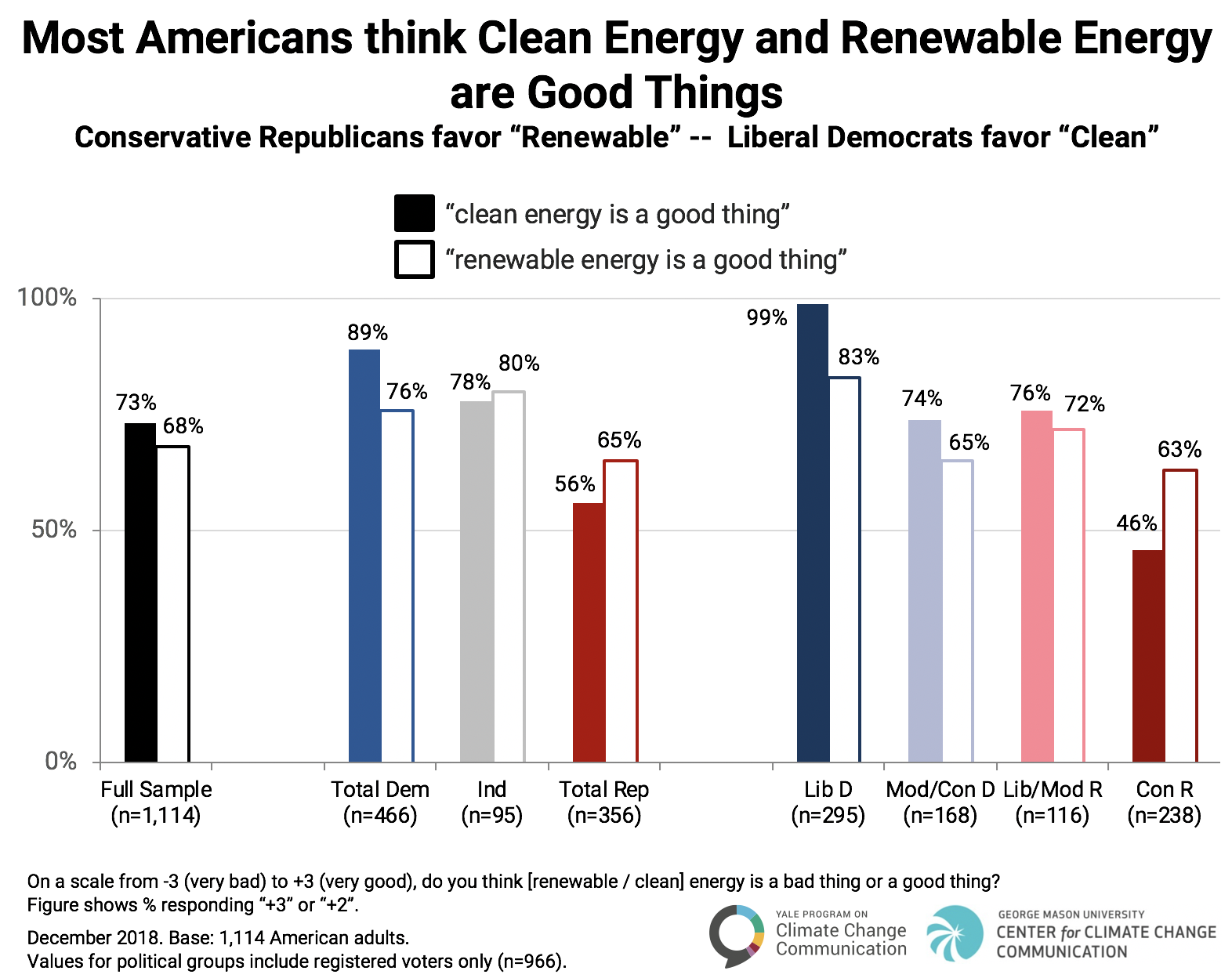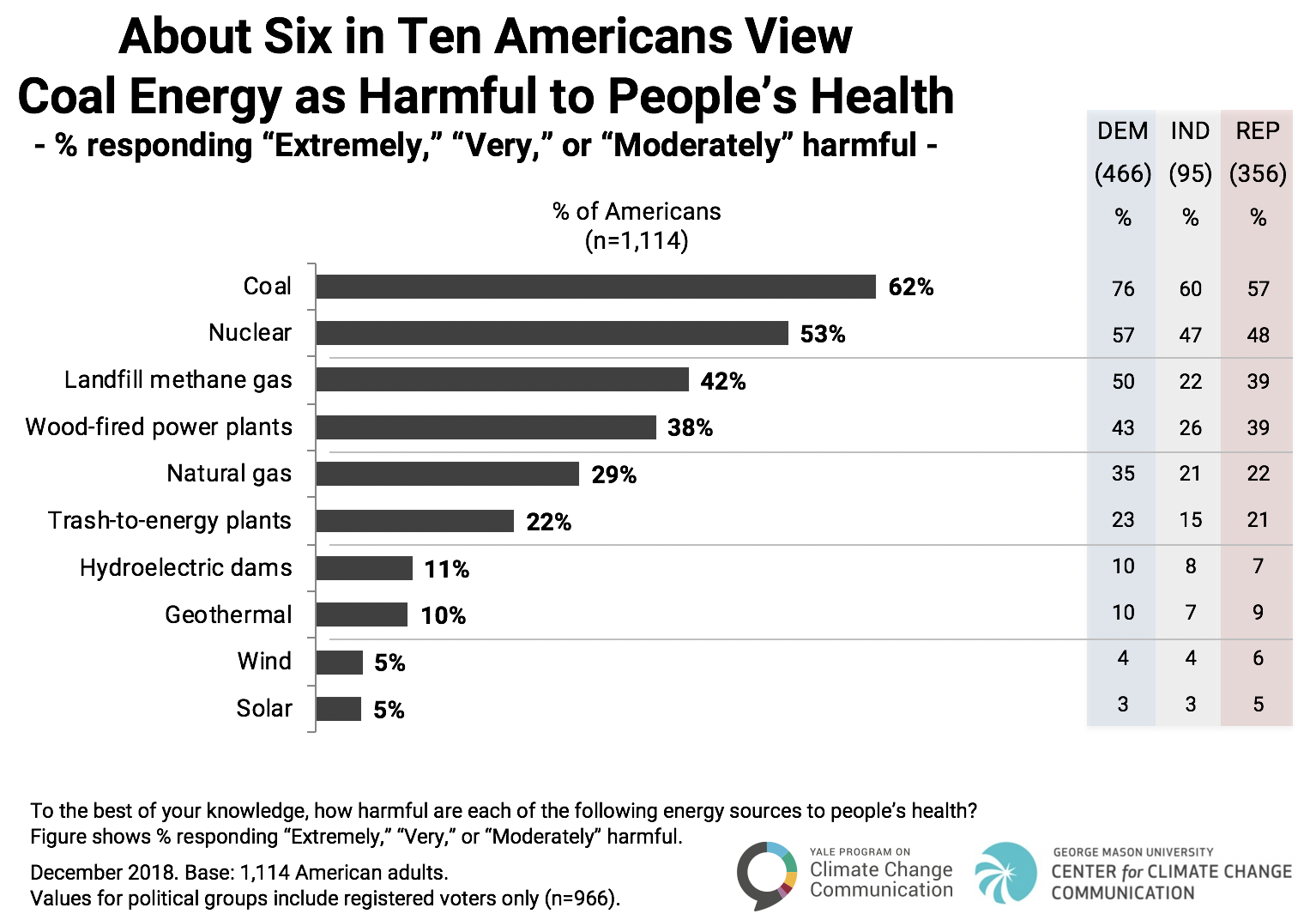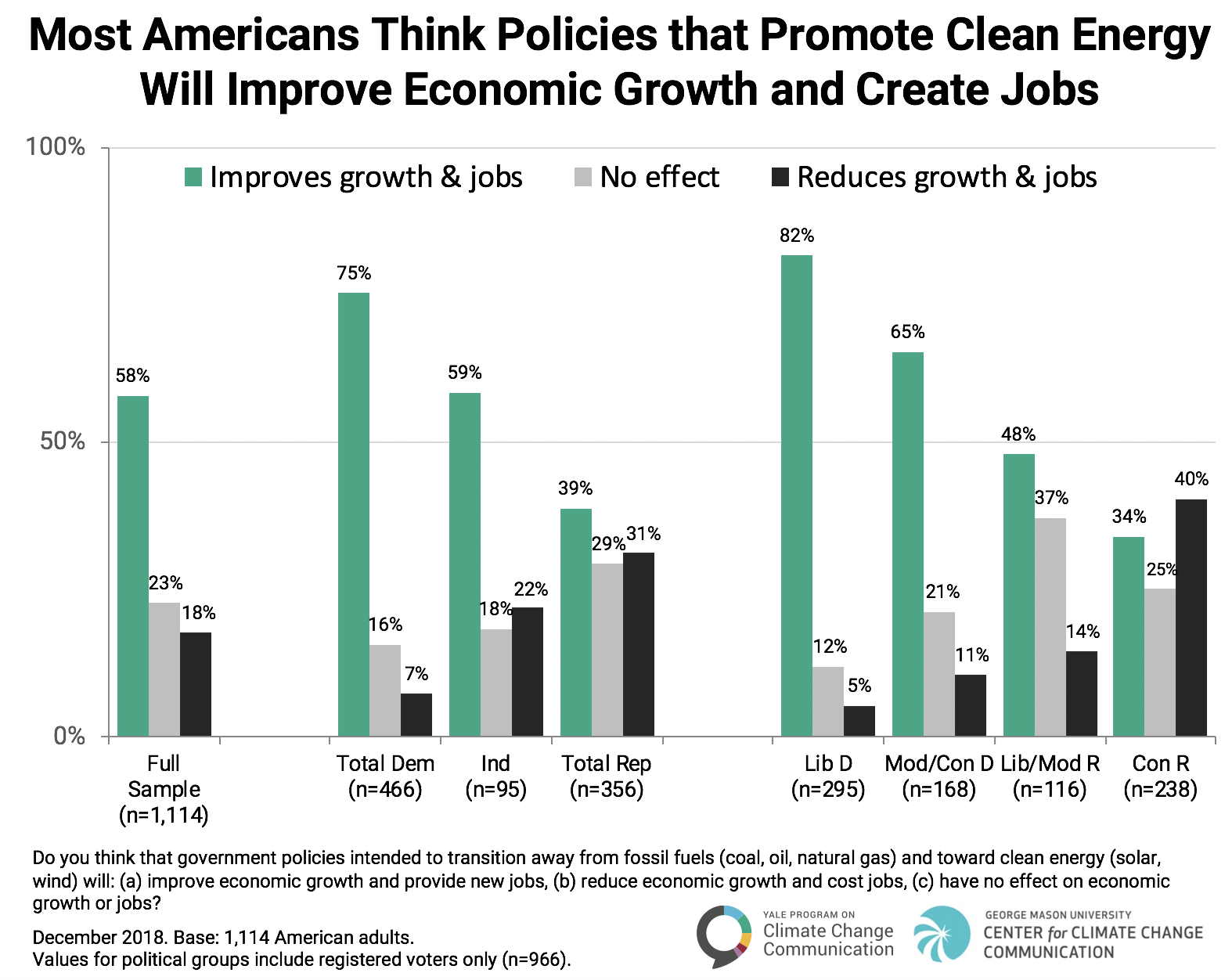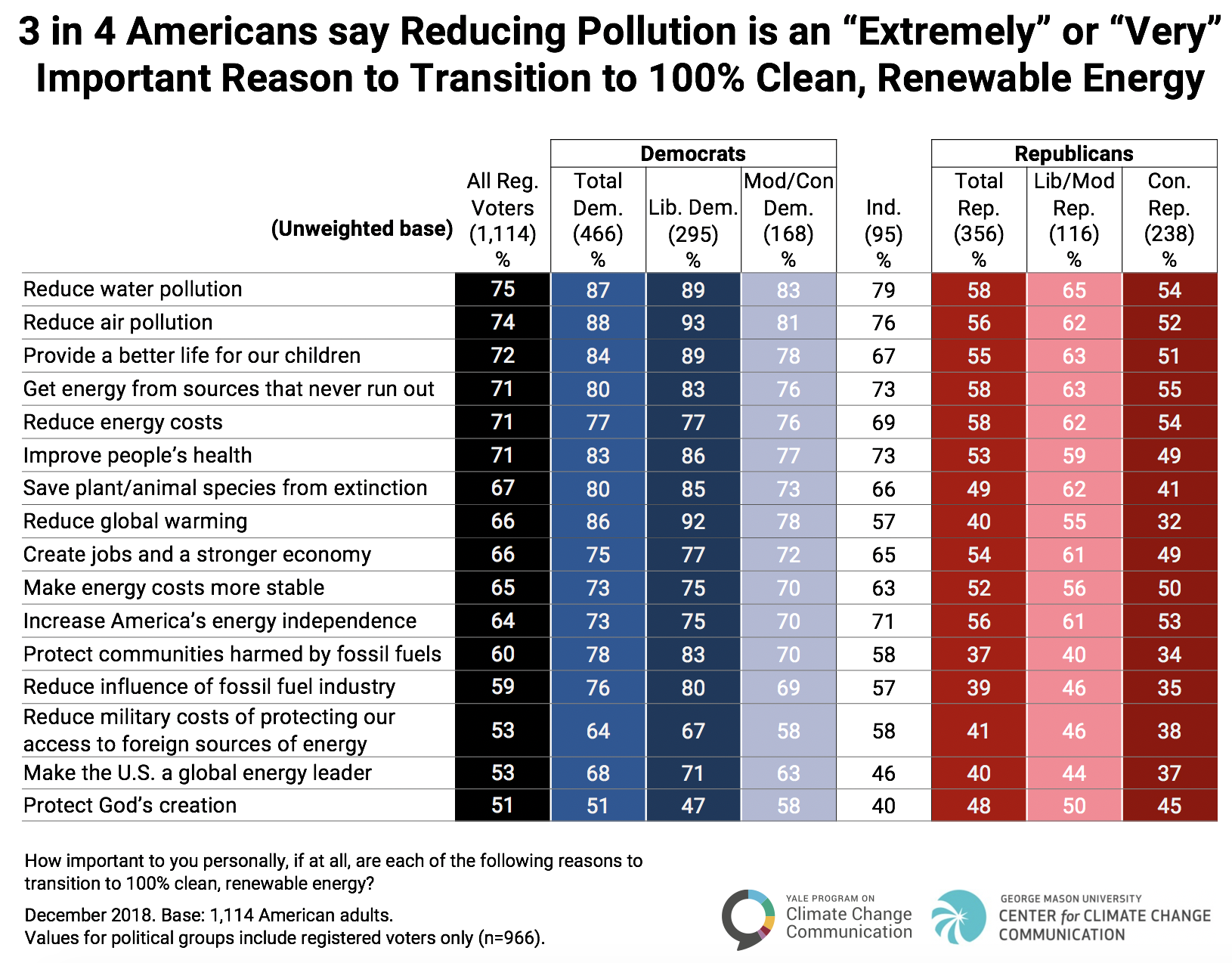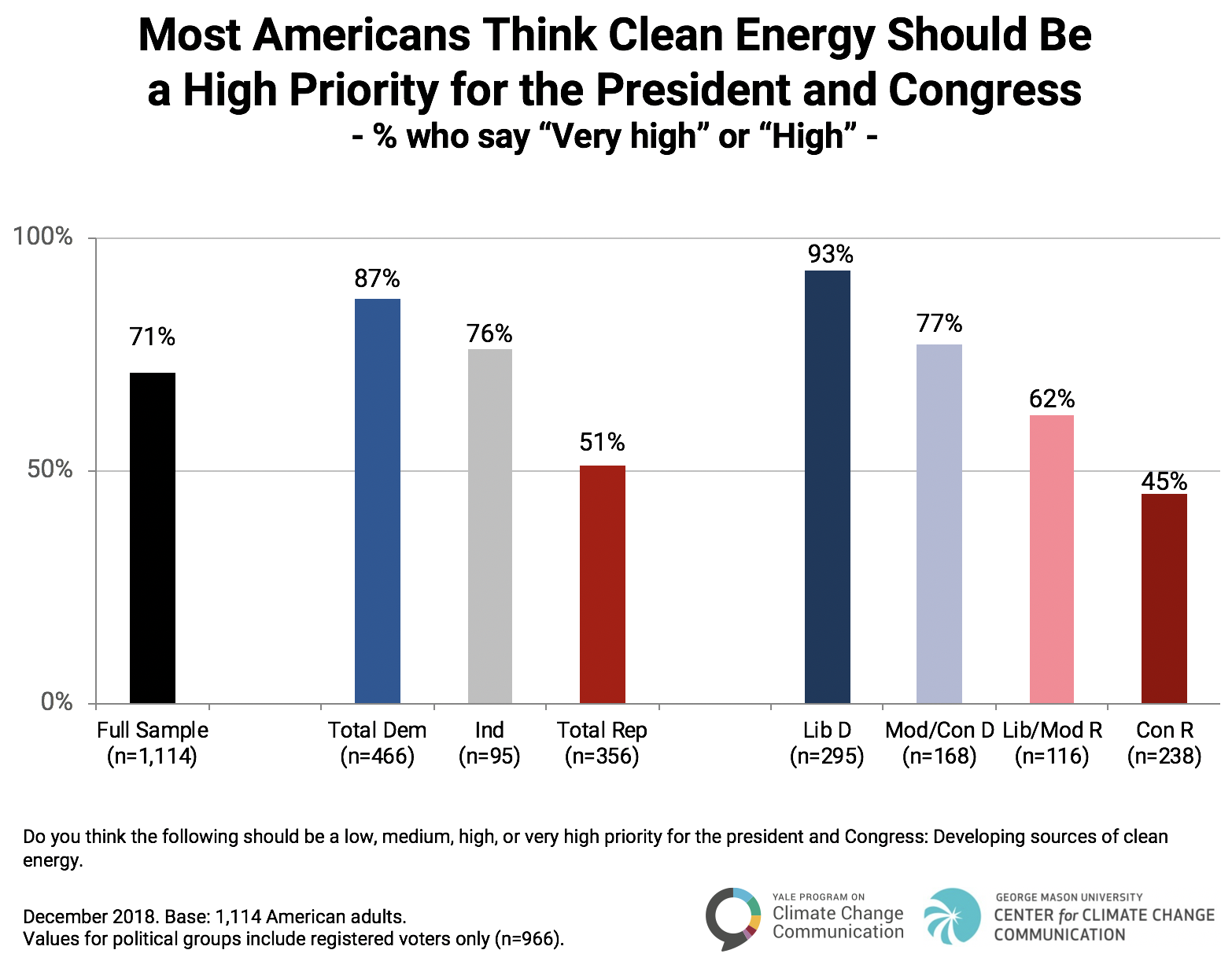Report · Feb 26, 2019
Energy in the American Mind: December 2018
By Anthony Leiserowitz, Edward Maibach, Seth Rosenthal, John Kotcher, Abel Gustafson, Parrish Bergquist, Matthew Ballew and Matthew Goldberg
Filed under: Beliefs & Attitudes, Policy & Politics and Behaviors & Actions
1. Core Beliefs and Attitudes about Clean, Renewable Energy
1.1 Most Americans think clean energy and renewable energy are good things.
Most Americans consider “clean energy” and “renewable energy” to be good things. We asked our survey participants if they thought “clean energy” (half the sample) or “renewable energy” (the other half of the sample) is a good thing or a bad thing – using a scale of -3 (“very bad”) to +3 (“very good”). Most gave ratings of “+2” or “+3” to clean energy (73%) and renewable energy (68%) – i.e., most Americans think these are good things.
The responses varied, however, across the political spectrum. Liberal Democrats were more likely to rate the term “clean energy” (99%) positively than “renewable energy” (83%), while conservative Republicans were more likely to rate the term “renewable energy” (63%) positively than “clean energy” (46%).
1.2. About six in ten Americans view coal energy as harmful to people’s health.
About six in ten Americans consider coal energy (62%) to be at least “moderately” harmful to people’s health. Democrats (76%) are more likely than Republicans (57%) to say that coal is a harmful source of energy. About half of Americans (53%) say nuclear energy is harmful.
In contrast, almost no Americans see solar (5%) or wind energies (5%) as harmful to people’s health; about three in four Americans think wind and solar are “not at all harmful” (see Data Tables). Democrats and Republicans largely agree on this point.
1.3. Most Americans think policies that promote clean energy will improve economic growth and create jobs.
A majority of Americans (58%) – including three in four Democrats (75%) – think policies intended to transition from fossil fuels to clean energy will improve economic growth and create new jobs. Only 18% of Americans – and 7% of Democrats – think such policies would reduce growth and jobs. Although Republicans are less likely than Democrats to think transitioning away from fossil fuels will improve economic growth and create new jobs, more Republicans believe such a transition will improve economic growth (39%) than will reduce it (31%), while 29% say it will have no effect one way or the other.
1.4. Three in four Americans say reducing pollution is an “extremely” or “very” important reason to transition to 100% clean, renewable energy.
Survey respondents were asked how personally important they found various reasons for transitioning to 100% clean, renewable energy. The reasons most frequently cited as either “extremely” or “very” important were reducing water pollution (75%), reducing air pollution (74%), and providing a better life for our children and grandchildren (72%). Reducing global warming was selected as an “extremely” or “very” important reason by two in three Americans (66%), including a large majority of Democrats (86%) and four in ten Republicans (40%).
The largest differences between Democrats and Republicans (total D-total R) were in reducing global warming (a 46-point gap), protecting communities harmed by fossil fuels (41 points), reducing the influence of the fossil fuel industry (36 points), reducing air pollution (33 points), and saving plants/animals from extinction (32 points). By contrast, protecting God’s creation had the smallest difference between Democrats and Republicans (3 points).
1.5. Most Americans think clean energy should be a high priority for the president and Congress.
About seven in ten Americans (71%; 87% of Democrats, 51% of Republicans) think clean energy should be either a “high” or “very high” priority for the president and Congress. Only 7% of Americans (3% of Democrats, 11% of Republicans) think it should be a “low” priority (see Data Tables).
1.6. Most Americans think a global switch to 100% clean, renewable energy by 2050 will effectively limit global warming.
A majority of Americans (61%) – including about eight in ten Democrats (79%) – think that if all nations switch to 100% clean, renewable energy by 2050, it will be “moderately” or “very” effective at limiting global warming. Liberal Democrats (86%) are more than twice as likely as conservative Republicans (36%) to think this.
